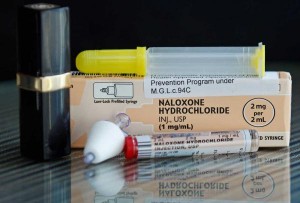With the general public clamoring for help, the debate over Narcan and who should have it rages on. Recently, I read a post by EMS and fire author and blogger Captain Michael Morse from Rescuing Providence. Michael relates some of his own personal experiences as well as those as a paramedic firefighter with the Providence, Rhode Island Fire Department to shape his opinion that making Narcan available to the public will allow drug users to “push their high to the limit and then return from the brink of death trough the judicious use of the miracle drug that they can now get as easily as they can their drug of choice.”
While I respect Captain Morse and his willingness to share his personal experiences with the community at large, I think he is missing the mark here.
There comes a time in medicine when we have to weigh the risks of the care and medications that we provide against its benefits and that is exactly what we need to do with Narcan. I am sure that somewhere in the United States the scenario that Captain Morse has shared with us could happen. Heck, I’m sure it probably has already happened, but we just don’t know about it, but making this argument is as absurd as saying that someone who is allergic to shell-fish would want to try lobster just once, Epi Pen in hand, ready to bring them back from the “brink of death.” While I am sure that it has happened, it is the exception to the rule.
“What if the drug is given too fast and the patient vomits?”
“What if the patient is actually speed balling and comes up violent?”
There could be a million and one “what ifs” that we throw out there, much like we could for C-Spining patients, or putting a patient on CPAP. The medical world is full of “what ifs” which is why every drug commercial on TV is followed by a long list of side effects that I am pretty sure include spontaneous combustion.
Rogue Medic will tell you that the problem with an opiate overdose is not Narcan deficiency, and that effective ventilation can fix these patients as well. I agree with this assessment, however, receptor site blocking does have a benefit long term. Also, teaching a non-EMS provider the finer points of effective ventilation to improve oxygenation will prove to be far more difficult which increases the value of Narcan in the hands of the general public.
As I read all of these “what if” opinions on Narcan, I wonder how Captain Morse feels about needle exchange programs. Using the same “logic” that has been applied to Narcan, one could come to the conclusion that needle exchange programs give users the tools they need to use the drug in the first place. Narcan is not the answer to solving the heroin problem that exists in the United States, it is a stop gap for catastrophic overdose of opiates. One must also create an infrastructure of support around these people, but that is a much bigger task than this one paramedic from a small east coast state can tackle.
So let’s move away from this game of “what if.” Let’s take a look at evidence, and weigh risk vs. reward. Let’s abandon the outlandish statements of “it’ll encourage people to use the drug more” which, in my opinion are as outlandish as those who actually say, “they overdosed, I don’t think they deserve any help at all.” And yes, I have seen people say that, and frankly, they should consider a career change.
I agree that making Narcan available not only to BLS but also to the general public is not the final answer to this national question, but it is a step in the right direction. Personally, I support it


I could give a bunch of what if’s, but I truly believe that the more we condone opiate use by needle exchanges and readily available narcan the more mainstream opiates, or more accurately, HEROIN becomes. People prone to drug abuse may be tinkering with the idea of trying heroin, and just a little nudge from a supporting public may be just what they need to dive in. I believe that more lives have been lost by the tolerance of drug use than by not distributing the antidote to overdoses. But, I don’t know for sure, just a feeling based on my friendships and personal understanding of addiction.
The question as to whether to allow all first responders to carry Narcan should really be pretty simple. The fact is, at some point, they are going to receive the drug anyway upon the arrival of a paramedic unit. There is really no sense in delaying this treatment, especially since Narcan is quite safe to administer. As you mentioned, there is always the risk of vomiting but that risk is certainly no greater than the alternative. As far as providing the medication to the general public, I do not feel there is any harm. It is far less dangerous than the prescription of narcotics for such a wide array of conditions (a debate for another day). While I am not a believer in needle exchange whatsoever, providing Narcan can only assist patients and responders.